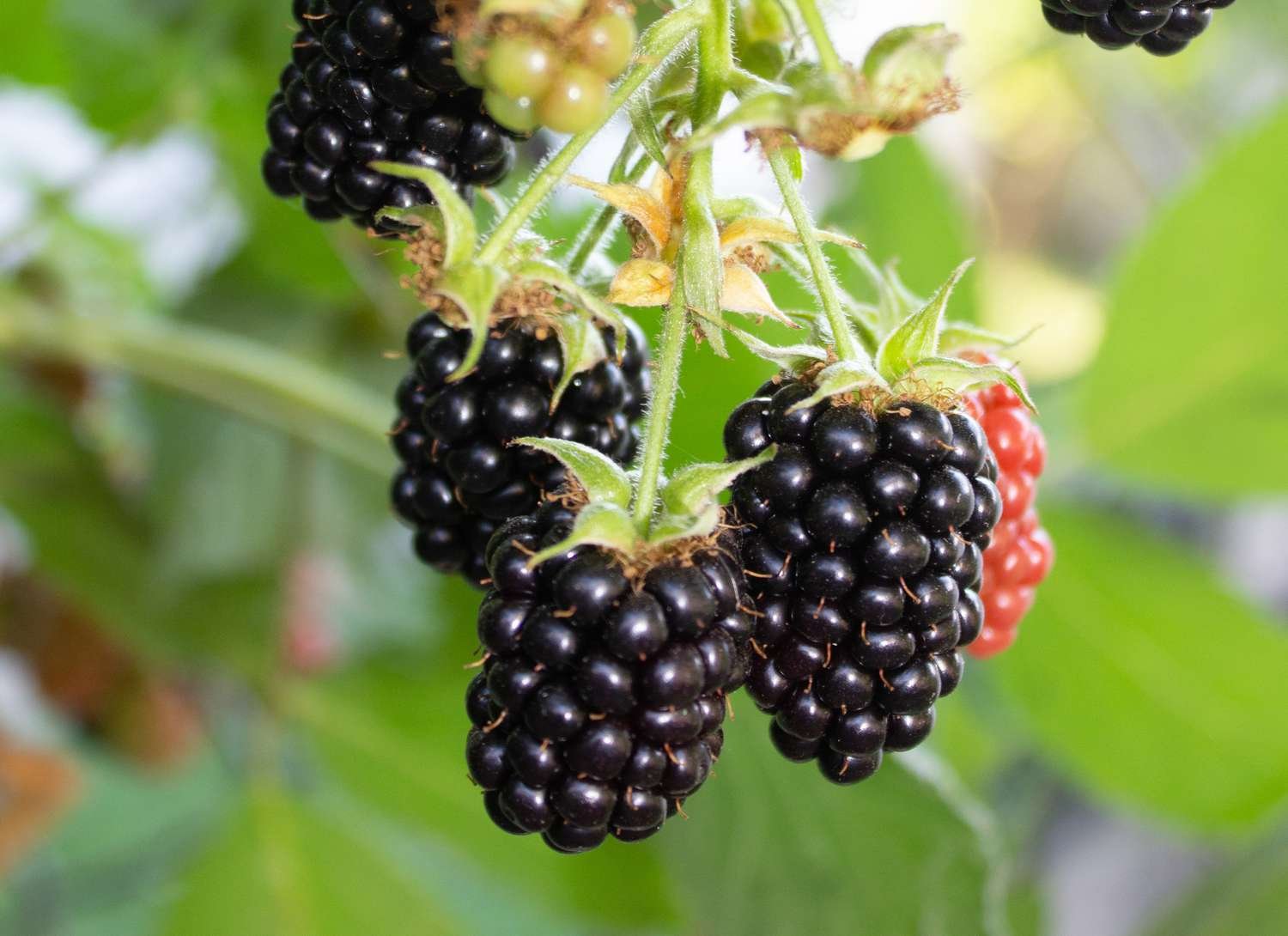Absolutely! Here’s a fully optimized, in-depth, and comprehensive guide on:
🍇 19 Companion Plants to Grow With Blackberries
Boost Yields, Repel Pests, and Build a Resilient Berry Garden Naturally
Growing blackberries in your home garden is a rewarding experience. These nutrient-rich, juicy bramble berries are hardy, low-maintenance, and ideal for small or large garden spaces. But did you know that you can make your blackberry patch even more productive and pest-resistant through companion planting?
The idea behind companion planting is simple: Pair plants that support each other’s growth—whether it’s by improving the soil, deterring pests, attracting pollinators, or optimizing garden space.
In this ultimate guide, we’ll explore 19 of the best companion plants to grow with blackberries, plus which plants to avoid, key benefits of specific pairings, and answers to frequently asked questions. Whether you’re an experienced gardener or just getting started, this guide will help you grow a healthy, thriving blackberry garden.

🌿 What Is Companion Planting and Why It Works for Blackberries
Companion planting is the practice of growing different plants close together based on their ability to benefit one another. For blackberries, this means finding plants that:
- Deter common pests like Japanese beetles, aphids, or cane borers
- Attract beneficial insects such as pollinators and predatory bugs
- Improve soil health through nitrogen-fixation or deep rooting
- Suppress weeds and reduce soil erosion
- Help with disease resistance and biodiversity
When done right, companion planting is a natural, chemical-free way to protect and enhance your blackberry patch.
✅ 19 Best Companion Plants for Blackberries
Let’s dive into the top choices, organized by the role they play in your garden ecosystem:
🐞 Pest-Repelling Plants
1. Tansy
Tansy is a powerful pest-repeller that wards off Japanese beetles, ants, and aphids—common nuisances in blackberry patches.
⚠️ Note: Tansy spreads aggressively and can be toxic to pets, so plant it in containers or designated areas.
2. Garlic
Garlic’s strong sulfur compounds naturally repel aphids, cane borers, and spider mites. Plant garlic at the edges of your blackberry bed to act as a barrier.
🧄 Bonus: It’s also edible and easy to grow year-round in many climates.
3. Chives
Chives not only repel insects like aphids and beetles but also enhance the flavor of nearby fruits subtly.
🌱 Best Used As: A border plant to keep pests from creeping in.
4. Marigolds
Known for their vibrant blooms and strong scent, marigolds are excellent at deterring nematodes, aphids, and beetles.
🌼 Tip: Choose French or African marigolds for best pest-control results.
5. Mint
The menthol scent of mint helps repel ants, aphids, and flea beetles. However, mint is invasive—plant it in containers near blackberries, not directly in the ground.
🪴 Great For: Attracting bees while keeping pests away.
6. Rue
Rue is an old-fashioned herb that deters Japanese beetles and other garden pests. It’s drought-tolerant and thrives in similar conditions to blackberries.
⚠️ Caution: Avoid skin contact—it can cause irritation for some people.
🦋 Pollinator-Attracting Plants
7. Yarrow
Yarrow is a pollinator magnet, attracting bees, butterflies, and ladybugs—all beneficial to blackberry production.
🌸 Also Helps: Improve soil structure with its deep roots.
8. Echinacea (Coneflower)
Coneflowers draw in pollinators while also boosting the visual appeal of your garden. They don’t compete for nutrients and bloom around the same time as blackberries.
💡 Perennial Bonus: Coneflowers return year after year with minimal care.
9. Bee Balm (Monarda)
This aromatic flower attracts bees, hummingbirds, and butterflies while also repelling spider mites.
🌿 Added Benefit: Helps increase the pollination rate and fruit set for blackberries.
10. Borage
Borage improves pollination by attracting bees and improves soil quality with its deep taproots that bring up minerals.
🌱 Also Edible: The leaves and flowers have a light cucumber flavor.
🌾 Soil Builders & Nitrogen Fixers

11. Comfrey
Comfrey’s deep roots break up compact soil and bring up nutrients. The leaves can be chopped and used as mulch or compost activator.
🌿 Excellent For: Boosting fertility in berry beds naturally.
12. Clover (White or Red)
Clover fixes nitrogen in the soil, helping blackberry canes grow strong and healthy. It also serves as a ground cover, reducing weed competition.
✅ Best Planted As: A living mulch between rows or in walkways.
13. Beans (Bush Beans)
Like clover, beans improve soil nitrogen. Choose bush beans to avoid vine interference with blackberry canes.
🫘 Tip: Plant after last frost as a seasonal companion.
🪻 Space-Smart Flowering Companions
14. Calendula
Calendula flowers repel soft-bodied insects and boost biodiversity. Their sticky resin traps pests, keeping them away from berry fruit.
🌼 Great Edible Addition: Petals are used in teas and salads.
15. Thyme
Thyme is a low-growing herb that makes an excellent living mulch. It suppresses weeds and reduces soil evaporation while repelling pests like cabbage loopers.
🌱 Companion Tip: Plant between blackberry rows or at the base of canes.
16. Lavender
Lavender repels moths and beetles while attracting pollinators. It thrives in similar dry, sunny conditions as blackberries.
💜 Use As: A visual and fragrant garden border.
17. Chamomile
Chamomile has antifungal properties and attracts beneficial hoverflies and parasitic wasps.
☕ Also Bonus: Flowers can be harvested for herbal tea.
🌿 Multipurpose Garden Allies
18. Nasturtiums
These bright flowers work as a trap crop, attracting aphids and whiteflies away from your blackberries. They’re also edible and bring bees in droves.
🌸 Grow in Containers or Along Garden Edges.
19. Dill
Dill draws in predatory insects like ladybugs and lacewings, which feed on aphids and mites. Its light structure doesn’t compete with blackberry canes for space.
🥒 Harvest Tip: Allow some dill to flower to maximize beneficial insect attraction.
🚫 Plants to Avoid Near Blackberries
Not all plants make good companions. Some interfere with blackberries’ growth, attract harmful pests, or compete for nutrients.
❌ Nightshades (Tomatoes, Potatoes, Eggplant, Peppers)
These crops are susceptible to verticillium wilt, which can spread to blackberries.
❌ Raspberries
Raspberries and blackberries share many of the same pests and diseases, like cane borers and rust.
❌ Strawberries
Though tempting to pair them, strawberries attract similar pests and are easily choked out by spreading blackberry roots.
❌ Fennel
Fennel is allelopathic—it releases compounds that inhibit nearby plant growth.
🧑🌾 How to Arrange Companion Plants Around Blackberries

Here are a few practical layout tips:
🔲 Plant in Zones or Layers
- Use tall companions (lavender, dill) at the edge or corners.
- Add medium-height herbs/flowers (echinacea, borage, bee balm) beside the blackberry rows.
- Fill spaces in between with low-growing companions (thyme, clover, chives).
🌱 Use Containers for Invasive Herbs
Mint and tansy are great companions—but invasive. Keep them in pots near the bed to enjoy the benefits without the risk.
🧱 Add Mulch Paths
Mulch paths between rows help suppress weeds and make room for companions like calendula and clover.
Table of Contents
❓ FAQ: Companion Planting With Blackberries
Q1: Can I grow vegetables with blackberries?
Yes—bush beans, carrots, and lettuce are good options. Avoid nightshades like tomatoes and potatoes, which share soil diseases with blackberries.
Q2: Do blackberries need pollinator plants nearby?
Absolutely. While blackberries are self-fertile, they yield more fruit with good pollinator activity. Companion flowers like bee balm and yarrow help boost harvests.
Q3: Can I grow herbs with blackberries?
Yes! Herbs like thyme, lavender, and chives are excellent companions. Avoid overly aggressive spreaders like mint unless contained.
Q4: Should I rotate crops around blackberry plants?
Blackberries are perennials and shouldn’t be rotated. Instead, rotate annual companions like beans and calendula for soil health.
Q5: How much space should I leave for companion plants?
Leave at least 2–3 feet between blackberry rows and 12–18 inches around the canes for companion plants. Avoid overcrowding to maintain airflow.
Q6: What is the best mulch for blackberry beds?
Use organic mulch like straw, wood chips, or shredded leaves. Comfrey leaves also make great “green” mulch when chopped and dropped.
Q7: Do companion plants affect berry flavor?

Indirectly, yes. Healthy plants with reduced pest stress and improved soil tend to produce larger, sweeter berries.
🌸 Final Thoughts: Design a Blackberry Patch That Works With Nature
Companion planting is one of the easiest ways to create a balanced, low-maintenance, and productive garden. With the right allies, blackberries can thrive with fewer pests, better soil health, and increased pollination.
Whether you’re planting in a sprawling berry patch or a backyard raised bed, integrating any of these 19 powerful companion plants will support your blackberries—and your entire garden ecosystem.

